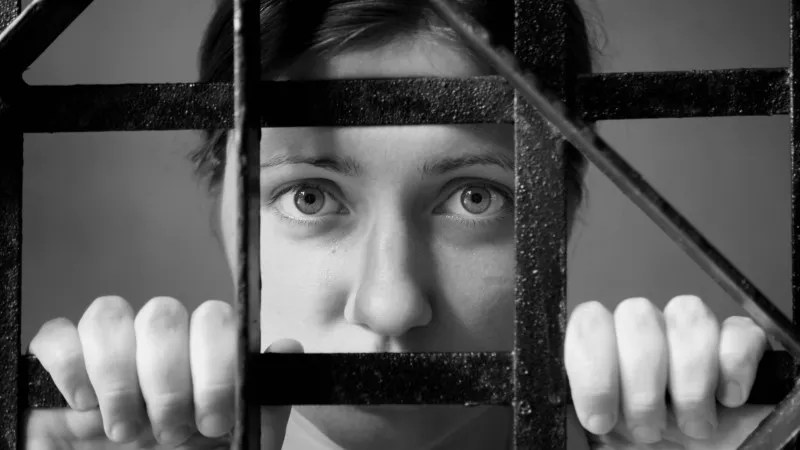
craetive/iStock

Audio By Carbonatix
The spread of coronavirus has forced many businesses and organizations to press pause or go home until the pandemic ends. However, several advocacy groups are still pushing on, raising awareness of populations affected by the virus’s impact on health care, the economy and more. The Last Prisoner Project, an advocacy organization that is fighting for social justice and expungement, sees the spread of coronavirus as yet another reason to release cannabis offenders from behind bars.
Last Prisoner Project executive director and general counsel Sarah Gersten hopes that the government will see the light and release the tens of thousands of people in jail for cannabis crimes. We caught up with Gersten to talk more about how cannabis offenders are currently dealing with the coronavirus and communicating with others behind bars.
Westword: How do you effectively push an advocacy effort forward in the midst of a pandemic that is sucking away everyone’s attention?
Sarah Gersten: The current crisis has forced a reckoning that a lot of our systems are fundamentally broken. Not in spite of, but as a result of this pandemic, we are seeking a lot of advocates coming together to push for reform, from health care to organized labor. One of those systems is the criminal justice system. Across the board, criminal justice reform organizations are pushing for decarceration as a necessary and critical response to this crisis. Mass incarceration is a public-health emergency. It has left prisons and jails highly susceptible to an outbreak given overcrowding, lack of resources, and little access to medical care.
How many prisoners are currently serving sentences for cannabis and at risk for contracting COVID-19? How did you find that number, and are they all low-level cannabis convictions?
There are an estimated 40,000 individuals incarcerated on cannabis offenses. Many of these prisoners are serving life sentences. That means many of them are over the age of 65, and we have numerous constituents with underlying health conditions. Our partner, Beth Curtis, has a list of cannabis “lifers” over the age of 62. But regardless of someone’s age or health, anyone currently incarcerated is at an incredibly high risk for contracting COVID-19. Correctional facilities and detention centers are amplifiers of infectious diseases, because the conditions that can keep diseases from spreading such as social distancing are nearly impossible to achieve.

Last Prisoner Project executive director Sarah Gersten.
Courtesy of Last Prisoner Project
Also, see also this note from a currently incarcerated cannabis prisoner: “An inmate must sign up for a ‘sick call’ Monday, Tuesday, Thursday, or Friday (you cant get sick on any of the other days). This usually consists of waiting in a line of twenty to fifty people at 6 a.m, just to be told more often than not to ‘go purchase ibuprofen from commissary.’ There are not many procedures that can be implemented in a prison setting to ensure the safety and health of the population in regard to the spread of a virus like COVID-19. Social distancing is nearly impossible, outside of locking us into our cells for 24 hours a day, which they are considering as I write this. The federal Bureau of Prisons is very reactive versus proactive, and they will probably wait until someone is infected with the virus, then react in a very authoritarian and harsh way. This will include many human rights violations and inhumane treatment. The flip side of that coin is if they don’t lock us down, because of the impossibility of social distancing, the virus will spread like wildfire in this environment. The risk to the elderly and health-compromised prisoners is enormous. For example, last night I went to eat dinner in the chow hall with my cellblock, which is four units of 120-plus prisoners. I waited in a crowded line before being handed our ‘main course,’ then I walked to a ‘hot bar,’ where we self-serve the side dishes. Last night was spinach. When I grabbed the handle of the ladle, it was wet and the next 200 people must’ve grabbed it after me. Then we immediately sit down to eat in a close cafeteria setting. One can see the problems this presents, and it’s just one of the many challenges in battling the virus and social distancing in prison.”
On top of worrying about contracting the virus, what other new challenges are prisons and prisoners facing as correctional facilities try to limit the spread of COVID-19?
Many people don’t know that if you’re incarcerated, in most states you must pay a copay to access medical care. Some correctional facilities have waived medical copays during the pandemic, but many have not. That means that while the general public has free access to testing, one of our most vulnerable populations does not. And, of course, nearly every facility has suspended or completely eliminated visitation.
To make up for this, some facilities have extended monthly allotted minutes for phone or video calls. Most facilities, however, are still charging for phone calls and smart visitations. You can imagine how difficult it is for our constituents to not be able to communicate with their families during this pandemic if they can’t afford the steep cost of those phone calls. One other thing on ancillary effects on correctional facilities: the loss of independent oversight.
Are you having any promising conversations with government and prison officials in states where cannabis is legal? What about Colorado?
We had already been working on a state-level clemency campaign in several states, including Colorado. Colorado is one of the states where the governor’s office and the Department of Corrections seem aligned in wanting to reduce prison populations – not just for cannabis prisoners, but for those eligible for things like compassionate care release as well. As the ACLU of Colorado and the Office of the State Public Defender’s Office has urged Governor Polis, the time is now to implement these clemency measures to avoid a disastrous situation in Colorado’s correctional facilities.